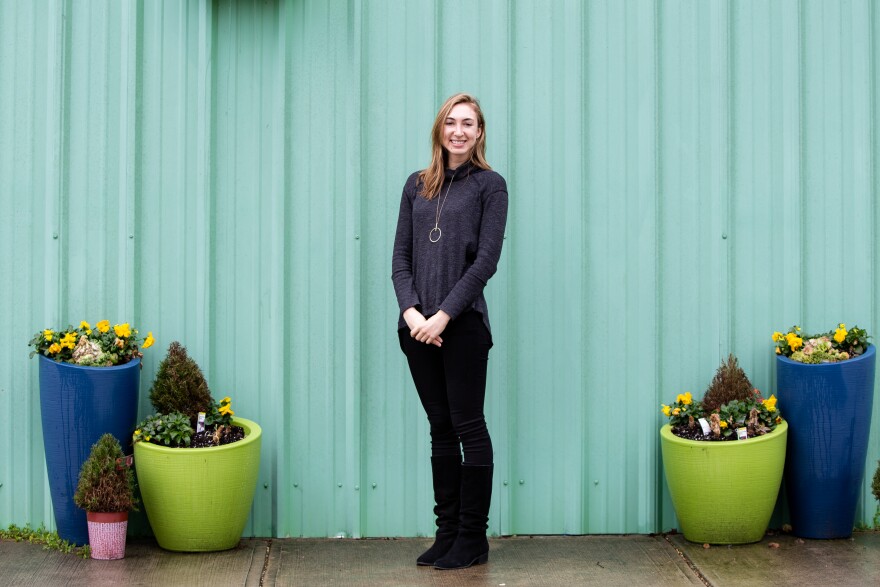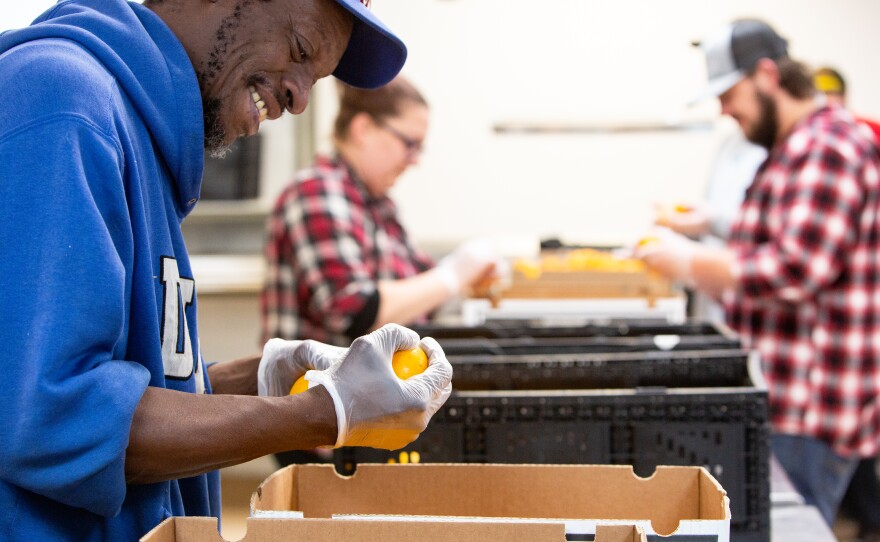Local grocers work hard to get the most beautiful fruits and vegetables onto market shelves. But a growing number of businesses worldwide are trying to cut down on food waste by selling the so-called "ugly" fruits and vegetables that would otherwise get left behind.
Courtney Bell runs a start-up in Hillsborough that caters to customers who won't judge an eggplant by its skin.
"Yeah, so we've had a strawberry before that looked like a lip with like a snarl, baring its teeth a little bit. It was a real sassy strawberry. Yeah, definitely had the eggplant with the Pinocchio nose. We see a lot of stuff, it's just not everything looks like that."

Bell is the founder of . It's a delivery service that buys up "ugly" and surplus fruits and vegetables from farms and distributors across North Carolina and sells them at about a 30 percent discount. Bell says her mission is to cut down on food waste and reduce food insecurity.
The U-S Department of Agriculture estimates that .
"Major retailers have very strict cosmetic standards and will reject shipments of produce that aren't entirely perfect. Even things with very small superficial flaws will get rejected. And because of that, farmers just don't even bother to pick the produce that is totally high quality but just a little bit misshapen or too big or too small. They train their employees just to leave it in the field when it could be getting sold or could be getting donated."
Most of the produce in the Ungraded warehouse this week looks pretty normal. Nevertheless, Bell's team inspects it to make sure nothing's rotten or wrecked by insects.
Bell founded Ungraded Produce as a senior at Duke University in 2016, and the business is rounding out its second year. She said her crews deliver boxes of fruits and vegetables to hundreds of customers across the Triangle.
Bell denies criticism about ugly produce retailers diverting produce from food banks, saying her business encourages the harvest of more vegetables and keeps distributors from throwing out produce it might not otherwise sell.
"We create incentives for farmers and other suppliers to pick and sell us their ugly and excess produce instead of leaving it in the fields or throwing it out. So we are buying that stuff that may be at risk of going to waste just due to appearance and then we box that up and deliver it to people's homes at a discount."
This sounds great, but . Salvaging this ugly and surplus produce is a good start, but to make an impact you need to make sure it ends up on your plate.










